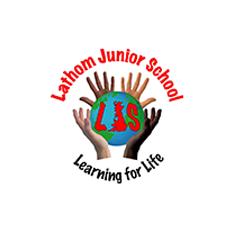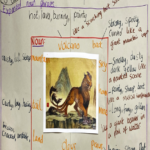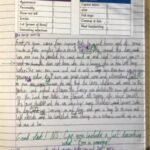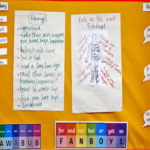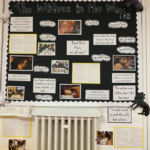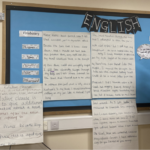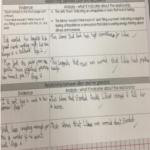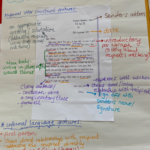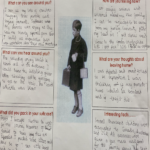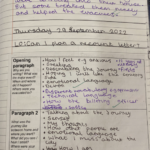At Lathom, we focus on enriching children’s learning experiences, so they all become confident speakers and motivated, independent writers. Our Writing curriculum is centred around high-quality core texts, which allows children to experience a range of worlds and cultures that engage them throughout their learning and sparks creative writing.
Carefully planned writing learning journeys consider key knowledge and skills that are appropriate for the year group for children to produce an independent final composition. The teaching of grammar is embedded in context when planning a writing unit.
Different elements form part of the writing learning journey. First, children are provided with suitable ‘experiences’ linked to the genre or writing outcome. Such experiences include drama, immersion, outside learning and educational visits linked to the topic. Then, there will be many opportunities for children to develop their spoken language as they interact with their classmates during learning sessions such as paired talk, talking trios, group discussions, presentations, and debates.
During the writing phase, the teacher decides when to use modelled, guided or shared writing to support children initially. Children engage in independent writing, ensuring that they write based on the given purpose and audience. They realise that editing is a very important stage in the writing process, and they focus on improving the overall effectiveness of their writing. All these elements are needed for children to produce a final composition which is engaging to the reader.
The writing long term overview presents the writing outcomes for each half-term for every year group. A conscious effort has been made to expose children to a variety of genres, to build depth and independence. Each half-term, there are two outcomes: one fiction and one non-fiction. The fictional outcome is linked to the core text and the non-fiction outcome can be linked to either the foundation subjects or the core text.
Please click below on the link to view Writing overviews.
Children at Lathom are given a range of meaningful opportunities to write for real purposes and audiences – to make writing more purposeful. For example, in the Summer term, children will write a persuasive letter to a local Member of Parliament, ‘How can Newham council improve the high street?’ Writing will also be celebrated through authentic publication and presentation across platforms such as the school’s website, a class book as a new addition to the school’s library or using publishing applications like Book Creator.
Handwriting
At Lathom, we use the Penpals for Handwriting scheme and ensure that a consistent approach is applied so that children get the required practice to improve their handwriting.
Sequence of teaching of Handwriting
Day 1: the teacher introduces the unit focus using the Penpals interactive program. The student practises the unit focus through a short activity.
Days 2 and 3: children are given two practice sessions weekly and it is at the start of the writing session.
Children are prompted to self or peer assess their handwriting.
Every week, during assembly, one child will receive a certificate to celebrate their excellent handwriting or improvement in their handwriting.
Spelling
At Lathom Junior School, we follow the Spelling Shed scheme from Years 3 to 6 and it follows key National Curriculum objectives.
Spelling Shed introduces spelling rules, structures, and patterns in small steps and with plenty of writing practice and a clear record of progress for every child. At Lathom, children are taught a spelling rule every week and have a spelling practice session where they use the new spelling words in context. At the end of the week, children will complete a spelling test.
For Home Learning, children access Spelling Shed through their accounts and practise the word lists and associated spelling games. Spelling Shed is an engaging and interactive way to help children practise spellings via simple online games. You do not have to purchase the app – children can log in using the official website instead. Playing games is an effective way to help children practise their spellings.
Please click on the images to view larger image.
Year 3 learning
Year 4 learning
Year 5 learning
Year 6 learning
Useful websites
Spelling Shed
BBC – Grammar, Punctuation and Spelling Key Stage 2
The Children’s Poetry Archive
Literacy Shed
A wealth of videos and animations to expand comprehension and understanding. Videos provide good talking points, such as moral dilemmas and questions about the world around us.
